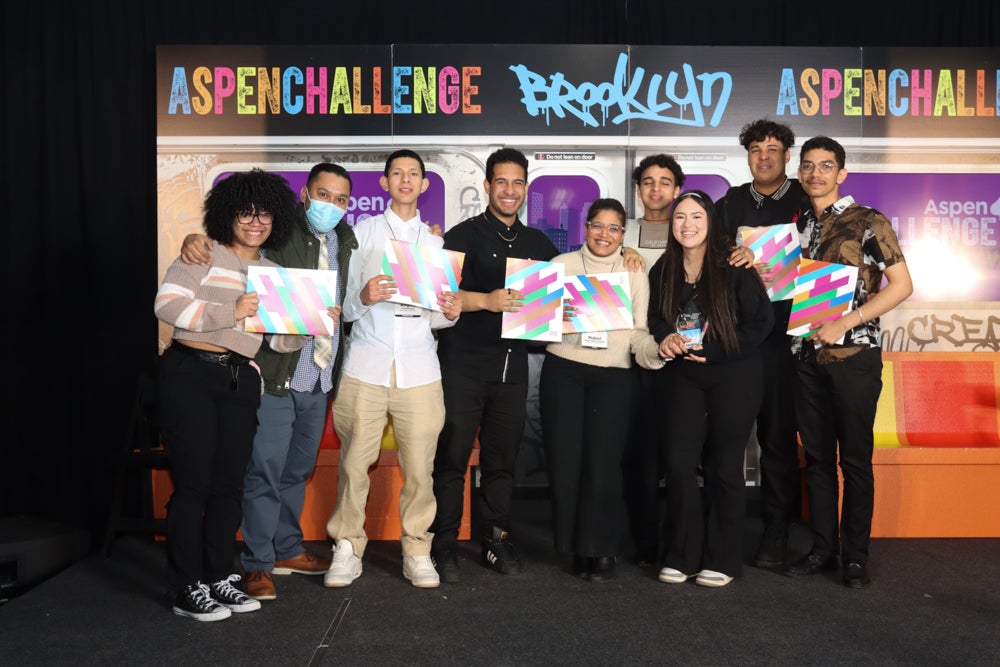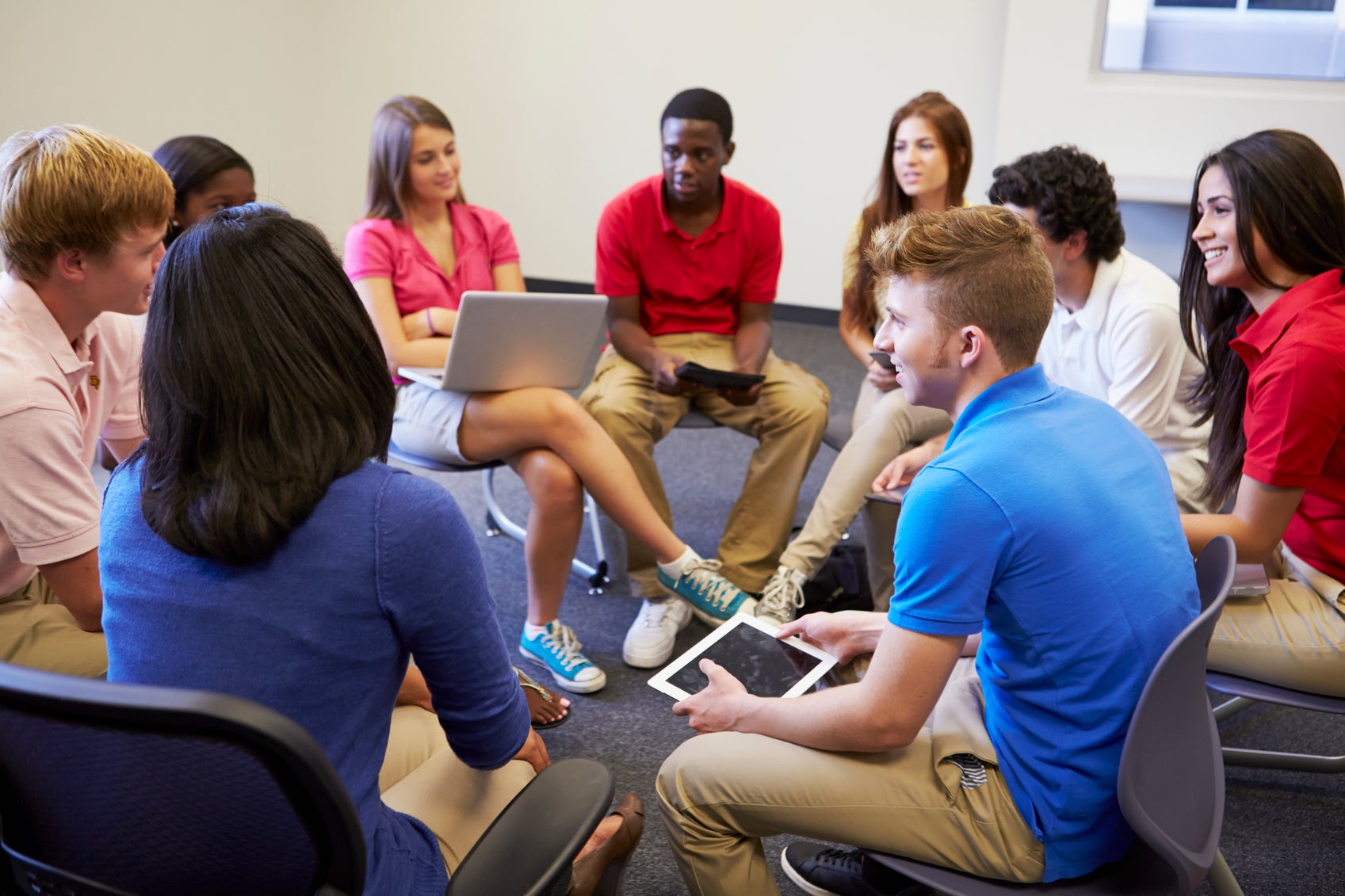This op-ed by Dan Porterfield, president and CEO of the Aspen Institute, was originally published in Forbes.
Because “war is the realm of uncertainty,” wrote the Prussian general Carl von Clausewitz in the classic study On War, navigating it requires “a sensitive and discriminating judgment…a skilled intelligence to scent out the truth.”
The same can be said of the global COVID-19 crisis, which presents a daily barrage of alarming news, partial information and erroneous rumors on countless topics: Human suffering and health system overload. Research findings and safety protocols. New risks and untested therapies. Job losses and economic relief measures. Home schooling and technology tips. Government policies and the private sector responses.
It may not be the disorienting fog of war that Clausewitz evoked, but it’s similar. No one can see through the fog of COVID-19 alone, and no one knows what “new normal” will be born from all this chaos.
So, in these times, where can we find the “sensitive and discriminating judgment” that Clausewitz knew to be essential for managing a high-stakes crisis?
Unfortunately, right now, relatively few Americans believe they’ll find this “skilled intelligence” in the White House. But we have to get it from somewhere. Locked-down in a blinding storm, we all need more perspectives than our own, both to help us understand our personal situations and to grasp better what’s happening to others. We need trustworthy sightlines into the crisis.
So far, I’ve found them in three places, and I’m grateful.
The first is journalism. While there are many writers and publications that I regard highly, there are some journalists who I’ve come to trust during this crisis almost like family friends:
One is Katie Couric, who curates a morning newsletter that combines accurate news, compelling stories, and helpful coping strategies. Another is David Leonhardt of the New York Times, who separates fact from falsehood on the issues of the day with precision and humility. A third is Charles Blow, also of the Times, who trains his readers’ eyes on the social structures and attitudes that leave poor, black, and brown Americans more vulnerable to maladies of many kinds. A fourth is the Washington Post’s Fred Hiatt, who unfailingly writes and edits from a position of fundamental fairness. A fifth is Anne Applebaum of The Atlantic, who brings an historical understanding of state power to her readings of the moment.
Each of these journalists, and many others, has earned my trust because their work shows that they will always serve the public good. They give us access to ideas, insights, stories, and angles of vision that I do not have on my own—sightlines into the crisis that help us make sense of it.
A second set of sightlines come from thought leaders. One is Madeleine Albright, the former U.S. Secretary of State, whose experiences as a refugee and a student of statecraft provide a perspective of both the strengths that democracies bring to any crisis and what’s at stake in these times of resurgent populism. Another is Danielle Allen, the Harvard classicist and political scientist who offers insights into how American democracy can foster the common good given the changes and challenges of today’s world. A third is my former boss Jack DeGioia, president of Georgetown University, who shows the remarkable ability in every crisis both to help his institution care for its inner circle—the students and staff—while also identifying new ways for Georgetown to live its broader mission of service to all.
While Secretary Albright, Dr. Allen, and President DeGioia have shaped my views for many years, this crisis has allowed me to learn of new go-to thought leaders whose sightlines are illuminating. In just the last month, for example I’ve gained a lot from former FDA Commissioner Scott Gottlieb, who uses data to make projections about both health risks and how to re-open up society; the psychologist and columnist Lori Gottlieb, who focuses her readers on how the COVID-19 crisis plays out in people’s emotional lives and mental wellness; and the labor leader Ai-jen Poo, who is shining a light on the needs and service of America’s domestic workers—low-paid, frontline care-givers who don’t have the option of working from the safety of their own homes.
A third invaluable sightline comes from my colleagues at the Aspen Institute whose jobs are to team up with communities to help create a free, just, and equitable society. Sometimes I call them “systems orchestrators” because they try to help vulnerable people navigate the economic and cultural systems that shape their lives—and change them.
For example, Maureen Conway, whose work focuses on promoting economic opportunity, is documenting how frontline workers and their small business employers share an anxiety about the double problem of keeping workers safe and keeping companies functioning. John Dugan, who leads our youth leadership programs, is using data science to show how many home-bound, low-income college students are feeling their sense of agency slip away due to the combination of new family crises like lay-offs or illness, substandard online classes, and the evaporation of their own part-time income. Abigail Golden-Vazquez, whose program advances the interests of the Latinx community in the United States, is analyzing the impact of COVID-19 on Latinx-owned businesses, which have been growing rapidly over the past decade. These businesses have always struggled to access credit and are now even more hamstrung. They can’t get loans or additional government support and are imagining turning off their lights for good—a terrible loss for them, their employees, their communities, and their dreams.
Through their strong relationships at the community level, these colleagues—and dozens more—provide the entire Aspen Institute, and society, with insights about COVID-19 consequences that we can’t easily get from other sources. They also identify policy-level cures for the collective endeavor, soon to come, of building a more inclusive economy and society so that all this mayhem doesn’t recur the next time a highly-infectious disease strikes.
In their different ways, these journalists, thought leaders, and system orchestrators are helping to clear the COVID-19 fog. With access to their sightlines, we can keep up the social distancing without also suffering from intellectual and emotional distancing. Even—or maybe especially—when we’re spending a lot of time in isolation, we can learn from them. And that fuels hope.

